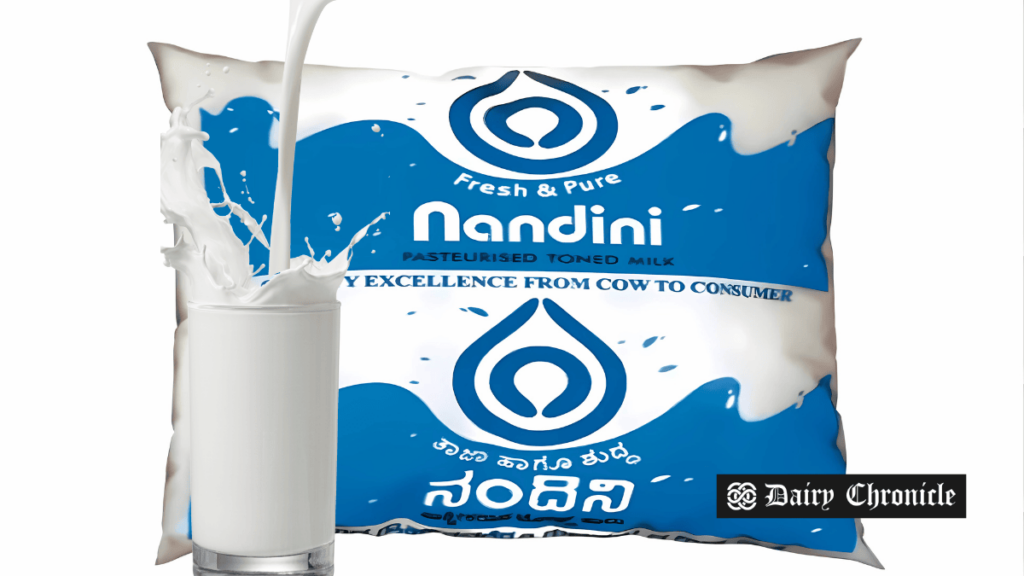The Karnataka Milk Federation (KMF), India’s second-largest dairy cooperative, plans to increase the price of Nandini milk by ₹5 per litre in Karnataka after the state budget on March 7, 2025. This will affect tea, coffee, curd, and other milk products.
The Karnataka Milk Federation (KMF), a cooperative managing the popular Nandini dairy brand, is set to increase the price of Nandini milk by ₹5 per litre in Karnataka following the state budget on March 7, 2025. The decision comes in response to supply fluctuations and farmers’ demands for higher procurement rates.
This revision means Nandini toned milk will now cost ₹47 per litre. Additionally, the quantity per packet will be reduced from 1,050 ml to 1 litre, impacting everyday consumers who rely on dairy products such as tea, coffee, and curd.
Major Price Revision After Three Years
This marks the largest price revision by KMF in the past three years. Previously, in 2022, the price per litre was raised by ₹3, while in 2024, the price increased by ₹2 per packet, with a corresponding 50ml increase in quantity. However, KMF maintained that the 2024 revision was not a direct hike since consumers received extra milk.
With this new price hike, daily expenses for Karnataka residents will rise further, following recent increases in coffee powder prices by ₹200 per kg. Additionally, BMTC bus fares and Namma Metro ticket prices have gone up, and the state government is considering raising water tariffs. Electricity supply companies (Escoms) have also proposed a 67-paise increase per unit for the next financial year.
Supply Issues and Farmers’ Demands
KMF Managing Director B Shivaswamy stated that the final decision on the price hike rests with the chief minister. “Earlier, we were procuring 85-89 lakh litres of milk per day, which later increased to 99 lakh litres. Now, the supply has dropped to 79-81 lakh litres per day. With this reduction, the additional milk provided to consumers will be discontinued,” he said.
Even after the increase, KMF maintains that Nandini milk will remain cheaper than other dairy brands in Karnataka and across other Indian states.
Cost Distribution and Stakeholder Talks
KMF is currently in discussions with farmer unions, milk cooperatives, and employee associations regarding the cost-sharing model. While the primary aim is to ensure the additional revenue benefits farmers, internal financial concerns have also been raised. A KMF official, speaking anonymously, mentioned that financial allocations must consider employee wages under the 7th Pay Commission, pensions, and other operational expenses.
The final decision on the price adjustment will be announced after the state budget presentation, marking a significant change for Karnataka’s dairy consumers and industry stakeholders.
